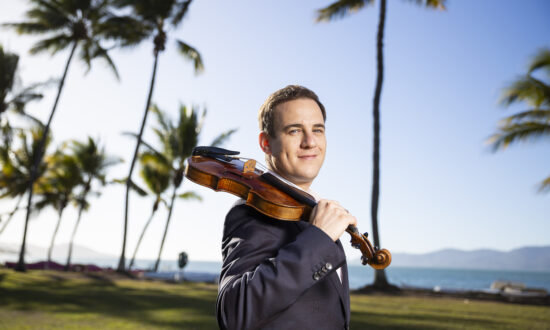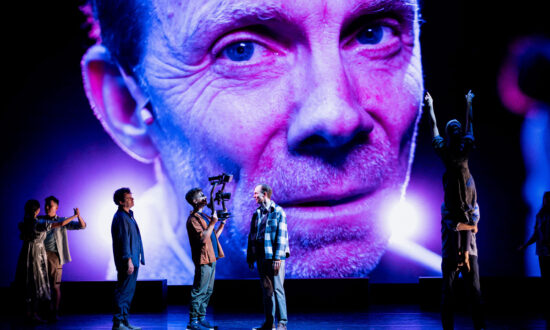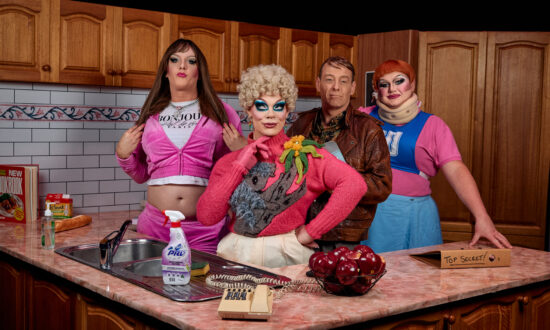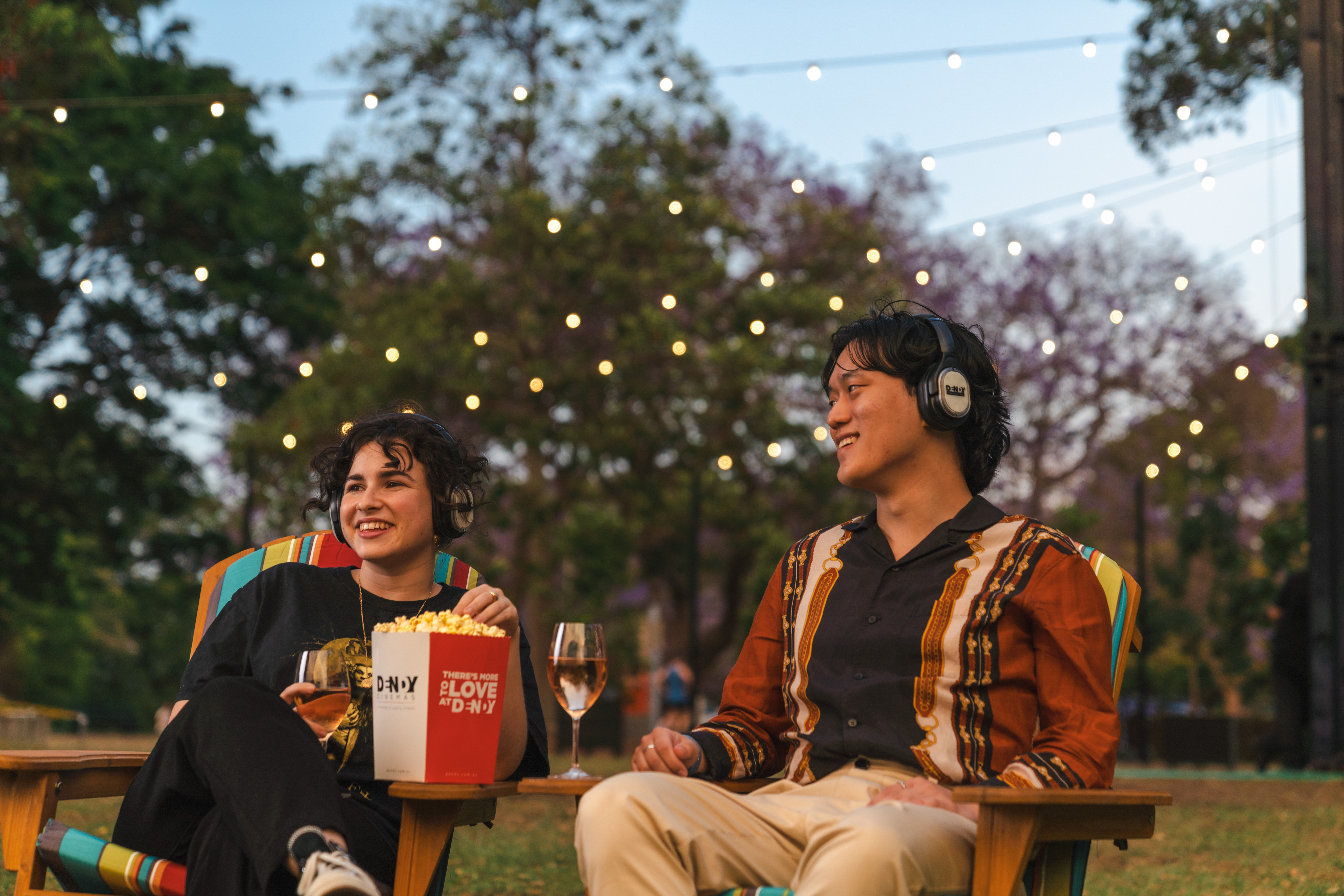The October 21 to November 7 festival will present 11 world premieres, one of which will be the debut theatre work by author Michael Mohammed Ahmad, whose novel The Lebs was a finalist in the prestigious Miles Franklin Literary Award in 2019.
Other highlights range from the arts-meets-food event Double Delicious – featuring guests including writer Benjamin Law and television chef Elizabeth Chong – to a work by Indonesian-Australian artist Jumaadi that reinvigorates the ancient art of shadow play, a music performance at Her Majesty’s Theatre paying tribute to Mahatma Gandhi, and a contemporary dance work that will be streamed online via real-time drone recording.
The festival’s popular Moon Lantern Parade will expand from a one-night event to a four-day experience, the Lucky Dumpling Market will return to Elder Park, and there will be a new writing and ideas program – In Other Words – on the Adelaide Riverbank Lawns.

OzAsia artistic director Annette Shun Wah. Photo: Prudence Upton
Shun Wah, executive producer of the arts company Contemporary Asian Australian Performance, took over the reins as OzAsia artistic director last year but the pandemic forced the cancellation of the 2020 festival, which was replaced instead by an online series of talks.
Current restrictions also saw the launch of this year’s program – originally planned as a live event for tonight – moved online.
“It’s been very challenging,” Shun Wah told InReview from lockdown in Sydney.
“This is meant to be an international festival and almost immediately after signing on the lockdown happened last year and suddenly international travel was looking impossible.”
Several artists will travel from overseas for the 2021 OzAsia: UK-based pianist Belle Chen is presenting the Australian premiere of her work Destinations, a show using electric keys, synthesizers and visual installations; Japanese choreographer and dancer Yui Kawaguchi is coming from Europe for a work created with local performer Alison Currie; and Singapore-based theatre director Jeffrey Tan will present a show called Open Homes, created in collaboration with six Asian-Australian storytellers.
The vast majority of the artists, however, are based in Australia – and Shun Wah is not unhappy about that.
“One of the things I really wanted to do with the festival was increase the amount of Asian-Australian work in it, because the festival is meant to be about the connections between Asia and Australia so it makes sense to me that it should absolutely include the people that embody those connections, which is people of Asian background already here.
“So that was always the intention… but as it turns out, with the limitations on what we could bring in internationally, that’s become an even stronger focus than originally thought.”
Among the established artists in the line-up are seasoned OzAsia Festival performer Mindy Meng Wang, a Chinese-Australian musician and composer who will present the world premiere of her new work When at The Lab in Light Square. When is described as a poignant and immersive audio-visual meditation on life during global lockdown, incorporating the ancient Chinese harp (guzheng), electronic cello, synthesizer and film footage.
The common theme of the festival is that these are voices that are often not heard and should be
Shun Wah says the festival will also feature a number of exciting new Asian-Australian voices, such as theatre-maker Anchuli Felicia King (writer of the satirical play White Pearl, announced previously), writer Michael Mohammed Ahmad and dancer-choreographer Raghav Handa.
Ahmad’s first play, The Demon, is “an action-filled, neo-noir investigation into the history of White Australia” that’s said to have a “Lynchian twist” and will be performed at the Dunstan Playhouse. It’s a contemporary story but revisits the violence against Chinese miners in the New South Wales goldfields in the early 1860s.

Raghav Handa and tabla player Maharshi Raval will perform Two at the Dunstan Playhouse. Photo: Joseph Mayers
Handa, named as one of Sydney Dance Company’s “New Breed” choreographers in 2020, joins with tabla player Maharshi Raval for Two, a performance that challenges the hierarchy between dancer and musician in traditional Indian Kathak dance.
“He’s very much someone to watch in terms of dance and choreography and we’re very thrilled to have him at this stage of his career with his own work,” Shun Wah says.
“It’s so interesting because it’s that interplay between dance and music, between the dancer and the tabla player, but done in a very laidback, quite funny way – it’s sort of dance theatre, and it will really take you by surprise when you first walk in.”
Handa is also involved in Double Delicious, an event being presented at the InterContinental Hotel that combines storytelling, food, visual projections and music. The show, first presented by Contemporary Asian Australian Performance at the Sydney Festival, sees five “storyteller cooks” each recount a story that is significant to their life, after which the audience gets to taste the dish. Alongside Handa, the other storytellers are Benjamin Law, actor and performance maker Valerie Berry, and TV chefs Elizabeth Chong and Heather Jeong.
“It’s incredibly moving watching the effect it has on people,” says Shun Wah, who is the dramaturge and producer of Double Delicious.
“The stories are really varied but they cover some really huge themes about family and resilience and loss and legacy.”

Double Delicious: Nicholas Ng with Benjamin Law. Photo: Clare Hawley
For her boundary-pushing new work The Long Walk, choreographer Sue Healey has taken inspiration from the thousands of Chinese miners who docked in Robe and made the 500km pilgrimage to the Victorian goldfields. The Long Walk, featuring a soundtrack by percussionist Ben Walsh, will be performed on the same coastline and streamed live at The Lab and online via real-time drone recording.
Among the “hidden gems” in her program, the artistic director highlights Action Star, a solo theatre performance by actor and martial arts performer Maria Tran, who has forged a successful career in martial arts films in Asia. The show – fuelled with stunts and live martial arts – shares Tran’s own story of growing up as a Vietnamese Australian in Sydney, as well as her struggle to gain recognition at home.
Some of the themes of Action Star show reflect those found more broadly across the festival.
“They are such a variety of works,” Shun Wah says, “[but] I think the common theme of the festival is that these are voices that are often not heard and should be. It’s presenting very different perspectives, particularly from within Australia, on the big themes of life.
“I guess the thing for me is bringing out voices that generally haven’t been heard on these big platforms like major festivals and main stages, and shifting the lens a little bit.”
She says the 2021 OzAsia Festival comes at a critical moment for Asia’s engagement with Australia.
“Right now, as a result of the awful strained relations we have with some parts of this region, as well as with the experience of the pandemic seeing the rise of anti-Asian racism, I think it really rings a few alarm bells that we shouldn’t be so complacent about how important it is… to really understand and recognise and engage with each other more as diverse Australians, but also to present a more complete picture to the rest of the world and a better understanding of the cultures that live around us.”

Action Star: Maria Tran in action. Photo: Anna Kucera
The ongoing challenges associated with presenting live performances in the midst of a pandemic are always front of mind for festival directors, with the recent border closures and restrictions affecting the program of South Australian events such as Illuminate Adelaide and the Guitar Festival.
While OzAsia would inevitably be impacted if borders were to remain closed, Shun Wah is optimistic.
“This is the world we live in right now… we have to hope and we have to plan. This industry needs that hope because it’s been so hugely impacted over the past 14 months by the pandemic, and also we as an audience really need these festivals to go ahead.”
The full OzAsia Festival can be viewed online. Read more about the previously announced shows – including an interview with theatre-maker Anchuli Felicia King – in this InReview story.
Support local arts journalism
Your support will help us continue the important work of InReview in publishing free professional journalism that celebrates, interrogates and amplifies arts and culture in South Australia.
Donate Here




